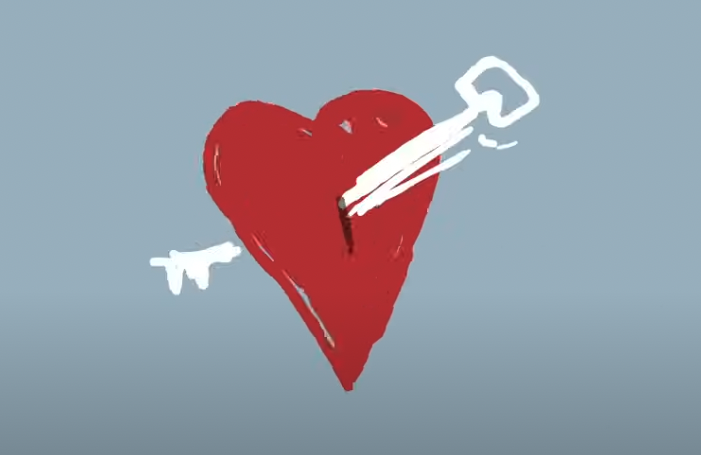No breakup is easy, whether it’s a brief fling that ended abruptly or the collapse of a long-term relationship. When someone you care about is grieving the loss of a romantic partner, it’s natural to want to help.
How to comfort your friend after a breakup is a question that goes beyond offering kind words; it calls for practical, considerate gestures that truly resonate with their emotional needs.
Supportive texts and heartfelt conversations matter, but real healing often takes place through tangible acts of kindness that restore a sense of normalcy and well-being.
In this article, we’ll explore concrete ways to provide meaningful support—from cooking a cozy meal to organizing low-pressure hangouts—while respecting each individual’s personal and cultural preferences.
Watch the video below about how to help a friend through a breakup and we also have an article on how to be a good listener here.>>
1. Beyond Words: Why Actions Matter
When Words Aren’t Enough
Heartbreak can create emotional upheaval that words alone may not soothe. Sometimes, your friend might not be ready to delve into their feelings, or maybe they’re tired of rehashing the same story. During these moments, even just showing up and giving support like cooking, cleaning and grocery shopping, can bridge the gap between your empathy and their healing with aid and relief from:

- Emotional Fatigue: Constantly talking about a breakup can magnify negative emotions, making alternative forms of support more impactful.
- Restoring Routine: Small actions, like cooking a meal or tidying up their space can bring some normalcy into their life when the rest of their life feels chaotic and unmanagable.
Answering Their Unspoken Needs
A crucial part of learning how to comfort your friend after a breakup is reading the unspoken cues. Their body language, tone, or change in routine can signal whether they need a distraction, a night in with supportive friends, or time alone. Tailoring your approach ensures they feel truly seen and cared for.
- Observation Over Assumption: Resist the urge to assume what they need. Instead, remain attentive to their behavior and mood to guide your supportive actions.
2. Assessing Your Friend’s Needs

Open-Ended Questions
Before diving into grand gestures, start with simple, open-ended questions to gauge where they stand emotionally. Examples might include:
- “How have you been coping lately?”
- “What’s been on your mind these days?”
These queries encourage them to share as much—or as little—as they feel comfortable, helping you understand whether they need emotional reassurance, distraction through social activities, or just silent companionship.
Respecting Cultural and Personal Factors
Your friend’s background and personality play a huge role in how they process heartbreak. Some cultures discourage overt emotional displays, while others embrace them. Gender expectations can also shape how they cope:
- Indirect vs. Direct Support: Some individuals—often men—may prefer an activity-based approach. A casual sports event or gaming night might suit them more than a heart-to-heart talk.
- Verbal vs. Non-Verbal Expressions: Others—often women—might openly crave emotional validation, looking for a friend who can listen without judgment.
3. Tangible Acts of Kindness
Cooking or Ordering a Meal

Emotional turmoil can disrupt daily routines, making even basic tasks like meal prep feel overwhelming. Offering a comforting dish—or ordering their favorite takeout—lets them know you see their struggle and are willing to help.
- Comfort-Food Favorites: Whether it’s chicken soup, pasta, or a simple batch of cookies, familiar tastes can provide surprising solace.
- Nutritional Boost: Consider healthy yet tasty options that support their physical well-being during an emotionally draining time.
Inviting Them Out
Sometimes, the best way to show you care is to change the scenery. Inviting your friend out for coffee, a nature walk, or a casual get-together with mutual friends offers both distraction and social support.
- Tailored Activities:
- For a Male Friend: A casual sports match, bike ride, or gaming session might be more comfortable if he’s less inclined to talk directly about feelings.
- For a Female Friend: A spa day, a laid-back brunch, or an arts-and-crafts afternoon can feel nurturing and provide a relaxed environment to share thoughts.
Surprise Care Packages
An unexpected care package can brighten someone’s day, showing that you’ve taken time to think about their likes and needs. See our article on our vetted breakup care packages that are guaranteed to comfort.
- Self-Care Essentials: Bath bombs, aromatherapy candles, or cozy socks often resonate with women who appreciate spa-like comfort.
- Practical Items: Men may appreciate tech gadgets, favorite snacks, or fitness accessories—especially if they find solace in hobbies or physical activities.
Consistent Check-Ins
Not every act of kindness has to be grand. A simple text—“Thinking of you today”—can be a gentle reminder that they’re not alone.
- Frequency: Adapt check-in frequency to your closeness with the friend and their comfort level. Overdoing it can feel intrusive, while too little contact might leave them feeling forgotten.
- Flexibility: Keep your messages open-ended, giving them the option to reply in detail or simply acknowledge your concern.
4. Recognizing When Support Is Overstepping
Signs of Discomfort or Irritability
Even the best intentions can become overwhelming if a friend isn’t ready for external help. Watch for cues that your well-meaning gestures might be bordering on intrusive:
- Irritability: They snap or grow curt in response to your offers of help.
- Withdrawal: They stop replying to messages or appear anxious when you bring up the breakup.
When you sense these signs, it’s essential to scale back. Provide reassurance that you’re available whenever they’re ready, with no pressure and no judgment.
The Role of Personal Coping Styles
Some people heal through internal reflection rather than talking it out. Forcing them to open up can create resentment or make them retreat further.
- Psychology Tip: Respect that each individual has a unique healing timeline and process. Let them know you’re a resource, that you are there for them, without pressure or obligation.
5. Gender & Religious Considerations
Supporting a Male Friend
- Encourage Activities: Men often express emotions more freely through action—like sports, gaming, or traveling.
- Normalize Emotions: Remind them that sadness or anger doesn’t signify weakness. If they do open up, validate their feelings without teasing or dismissing them.
Supporting a Female Friend
- Validate Emotions: Many women find comfort in verbalizing feelings. Let her vent about her ex, the situation, or any lingering doubts.
- Offer Emotional Safety: Show understanding and reassure her it’s okay to feel upset or disappointed for as long as she needs.
Supporting an LGBTQ+ Friend
Breakups can be extra complex for LGBTQ+ individuals, who may grapple with added societal pressures or limited family support. Acknowledge these stressors and offer judgment-free understanding:
- Use Inclusive Language: Confirm pronouns and avoid assumptions about traditional relationship roles.
- Validate Emotions: Heartbreak feels universal, but identity-based concerns can amplify sadness or isolation—affirm their feelings and worth.
- Respect Boundaries: Some may be selective in sharing details for fear of judgment; offer confidentiality and a safe space to vent.
- Encourage Resources: Suggest LGBTQ+ affirming counselors or community groups, reinforcing that support and acceptance exist beyond the breakup.

Religious Considerations
Some breakups are complicated by spiritual beliefs or faith-based expectations. For devout religious folk, their faith and trusting in God when a relationship ends might require different or additional support according to their faith. Sensitivity to these factors can make a big difference:
- Acknowledge Spiritual Impact: They may wrestle with guilt or confusion if their faith community disapproves of breakups. Offer non-judgmental listening.
- Encourage Faith-Based Support: If appropriate, suggest they speak with a trusted religious leader or engage in prayer/meditation to find comfort.
- Respect Their Journey: People reconcile heartbreak and faith in diverse ways—remain open-minded and avoid imposing personal beliefs on them.
- Balance Devotion and Healing: Remind them that self-care (therapy, supportive friends) can harmonize with spiritual practices for holistic recovery.
Below, we’ve split our advice into two sections: one tailored to comforting a female friend and one for a male friend.
While the core principles of compassion, understanding, and patience are universal, subtle differences in emotional expression and social pressures can affect how best to offer support.
Read on for thoughtful approaches to support a man or woman navigating their heartbreak.
6. Practical Tips for Offering Balanced Support
- Set Boundaries: If you sense you’re giving more time or energy than you can handle, it’s okay to politely step back. Your own emotional health matters, too.
- Offer Choices: Instead of saying, “Let’s talk about your ex now,” try “Would you rather talk about it, watch a funny movie, or go for a walk?” Giving options puts them in control of their emotional environment.
- Emphasize Personal Growth: After the initial heartbreak subsides, subtly encourage them to explore new hobbies or revisit old passions. This helps them rebuild identity and confidence.
7. Conclusion & Next Steps
How to comfort your friend after a breakup isn’t just about lending an ear; it’s about translating empathy into meaningful actions that align with their emotional state.
Whether you’re cooking a meal, planning a walk in the park, or sending a simple “Thinking of you” text, these tangible gestures can restore a sense of normalcy and self-worth at a time when everything feels off-balance.
It’s crucial, however, to strike a balance between showing support and respecting boundaries. Some friends might welcome your offers wholeheartedly, while others need gentle reminders that you’re there if and when they’re ready.
Remember, you’re not there to fix them or rush their healing process. Rather, your role is to be a consistent, understanding presence, helping them rediscover stability and hope in whatever way works best for them.
From customizing your approach based on cultural or personal factors to acknowledging when it’s time to step back, thoughtful adaptability remains your greatest tool in assisting someone through heartbreak.
Key Takeaways
- Observe, Don’t Assume
- Pay attention to how your friend behaves and tailor your support to their needs. Whether it’s a quiet meal at home or an active outing, you can try to match their unique coping style.
- Tangible Acts Can Speak Louder Than Words
- Words are powerful, but hands-on help like cooking, running errands, or sharing the burden of daily activities. It can often resonate deeply with the recipient, particularly when daily routines are disrupted by the emotional pain.
- Respect Individual Boundaries
- Know the difference between offering support and pushing too hard. If you sense resistance, provide space while maintaining a reassuring presence.
- Gender Nuances Matter
- Some men may prefer action-based help, while women might seek verbal empathy. Tailor your approach to their needs without succumbing to rigid stereotypes.
- Long-Term Support
- Healing isn’t linear. Stay mindful that your friend might need ongoing check-ins or new forms of encouragement as time progresses.
FAQs
Q1: What if my friend doesn’t want to leave the house or socialize at all?
That’s okay. Some people need time to process heartbreak in a more private setting. You can still support them with small gestures—like dropping off a homemade meal or sending a thoughtful text. Let them know you’ll be ready whenever they decide to step out or reconnect.
Q2: Is it better to distract them or encourage them to talk about their feelings?
Both can be helpful, depending on their emotional state and personal coping style. If they’re visibly distressed and want to vent, let them talk. If they’re resistant or tired of rehashing events, a fun distraction—like a movie night or a gaming session—can provide relief.
Q3: How frequently should I check in?
There’s no one-size-fits-all rule. Close friends might appreciate daily texts, while others may feel overwhelmed by constant messages. A balanced approach is to check in regularly but keep the tone low-pressure, allowing them to take the lead in responding.
Q4: What if I feel emotionally drained from helping too much?
It’s essential to recognize your own limits. Supporting someone through heartbreak can be emotionally taxing. Take breaks when needed, set boundaries, and remember that you’re not responsible for “fixing” their feelings.
Q5: Can practical gestures really make a difference compared to emotional talks?
Absolutely. While heartfelt discussions are vital, practical gestures help them regain a sense of normalcy and stability. Even something as simple as bringing groceries, cooking a meal, or organizing an outing can be a powerful reminder that they’re not alone.
By combining empathy with actionable support, you’ll be far more equipped to comfort your friend after a breakup in a way that genuinely resonates. Trust your instincts, respect their pace, and remember: every small act of kindness can be a stepping stone toward healing.



